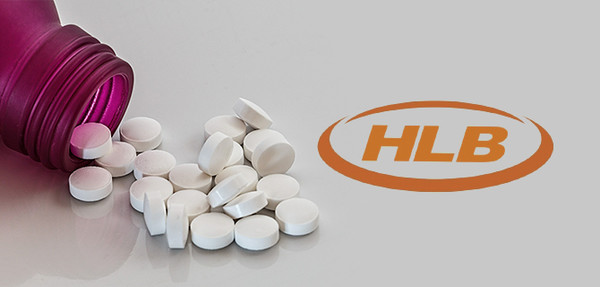HLB Therapeutics said Tuesday that the U.S. Food and Drug Administration had approved the execution of an expanded access program (EAP) for its OKN-007, a treatment candidate for pediatric patients with disseminated intrinsic glioma (DIPG).

The company has started administering the first dose of the treatment.
NHPN-1010, developed by Oblato, a U.S. subsidiary of HLB Therapeutics, is in phase 2 clinical trials on patients with glioblastoma multiforme (GBM)
As OKN-007 has shown efficacy in animal models of disseminated endogenous glioma along with glioblastoma, Oblato plans to expand its indications to DIPG, for which there is no available treatment.
DIPG is a rare pediatric cancer occurring in the brainstem of children, usually between the ages of five and 10, causing loss of balance and headache. About 90 percent of patients die within 24 months of diagnosis, and the survival rate for more than five years is only 1 percent.
HLB Therapeutics applied for the EAP after Dr. Rene McNall of the University Of Oklahoma Health Sciences Center in the U.S. suggested using the drug on patients with DIPG. Dr. McNall started administering the first dose last month to a DIPG patient and confirmed no side effects for a month. She plans to start administering the treatment to a second patient this month.
"With the EAP, we have confirmed the possibility of expanding indications for OKN-007 to DIPG following GBM," HLB Therapeutics CEO Ahn Ki-hong said. "Through patient administration, the company will accumulate additional data and verify the efficacy of treatment."
EAP authorizes the use of new drugs under development for long-term, life-threatening or severe patients that have no other suitable treatment options. The FDA approves it on a limited basis and for humanitarian reasons.

